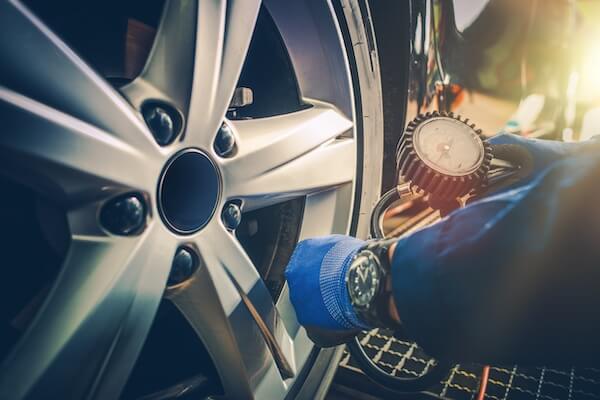
With temperatures cooling down in Richmond, VA, we’d like to remind our customers and community to check their vehicle’s tire pressure. This isn’t rocket science – cold weather can cause the air inside your tires to contract. To avoid driving with underinflated tires, please be sure to take some time to monitor and adjust your tire’s air pressure.
Oftentimes, our clients will ask us, “what is the recommended tire pressure for my car”. There is no right or wrong answer for all vehicles because it varies depending on your vehicle’s make and model. Before pulling out the gauge or taking your car to the nearest air pump, ensure you know your automaker’s specifications for tire PSI.
If you operate a light truck, car, or SUV, the recommended usually ranges from 32-36 psi. To be sure, check the following places for accurate details:
- Driver or passenger inner door jam
- Sticker or decal inside the fuel door
- Owner’s handbook
Please be aware that your front tire pressure may be different from the rear tire pressure.
Next, you will want to bring your car to a gas station, repair shop, or service station to get your tires filled. Some air pumps aren’t free, so be prepared to bring some change or cash. It is also worth noting that you should invest in a tire gauge as it can be useful on the road.
If your tire pressure is within the recommended psi range, you can simply move on with your day. However, if they are underinflated, you might question why. Besides cool weather, tires can leak from loose valves, sidewall damage, or even from a nail or sharp object on the road.
If your tires continue to lose air pressure, there may be a bigger issue at hand. For all your tire care needs, feel free to visit the auto repair specialists at Bimmer Rescue for assistance. We can inspect your tires, measure their pressure, and top it off with air.
Make An Appointment